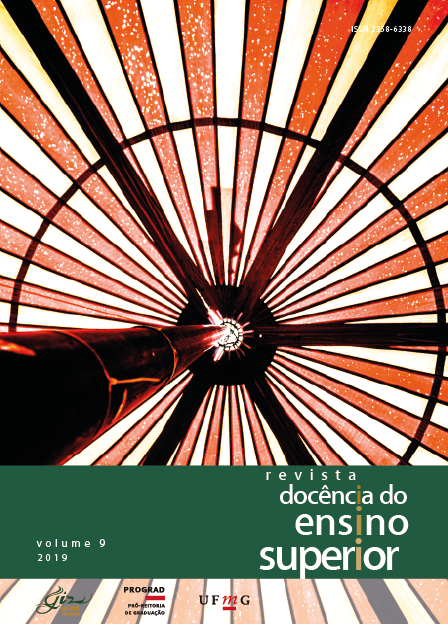Teaching in graduation and professional practice of nutritionists who supervise internships at food services
DOI:
https://doi.org/10.35699/2237-5864.2019.12346Keywords:
Collective Feeding, Internships at Nutrition, Food services, Higher education and practiceAbstract
The aim of this study was to investigate the compatibility between teaching in graduation and professional practice of nutritionists who supervise curricular internships at food services. The study was conducted at the Nutrition course of Federal University of Pampa through the following steps: 1) Interview with the nutritionists who had supervisioned curricular internships at food services; 2) Analysis of the subjects of teaching programs from seven courses related with the area of interest; 3) Evaluation of compatibility between subjects of these courses and professional practice. Four nutritionists participated, and a partial compatibility between the subjects and the professional activities was observed. Some subjects were not mentioned, although they are required by professional legislation. Unlike the practice, the theory approach was more technical. It is suggested, hence, to broaden the subject approach, considering the operationalization of knowledge as a way to bring them closer to professional practice.
Downloads
Downloads
Published
How to Cite
Issue
Section
License
Authors who publish in this journal retain the copyright and grant the journal the right of first publication, with the work simultaneously licensed under the Creative Commons Attribution License which allows the sharing of work with acknowledgment of authorship and initial publication in this journal.
Authors are authorized to take additional contracts separately, for non-exclusive distribution of the version of the work published in this journal (e.g. publish in institutional repository or as a book chapter), with acknowledgment of authorship and initial publication in this journal.
Open access policy:
Revista Docência do Ensino Superior is an Open Access journal, which means that all content is available free of charge, at no cost to the user or their institution. Users may read, download, copy, distribute, print, search, or link to the full texts of the articles, or use them for any other legal purpose, without seeking prior permission from the publisher or author, provided they respect the license to use the Creative Commons used by the journal. This definition of open access is in line with the Budapest Open Access Initiative (BOAI).
























